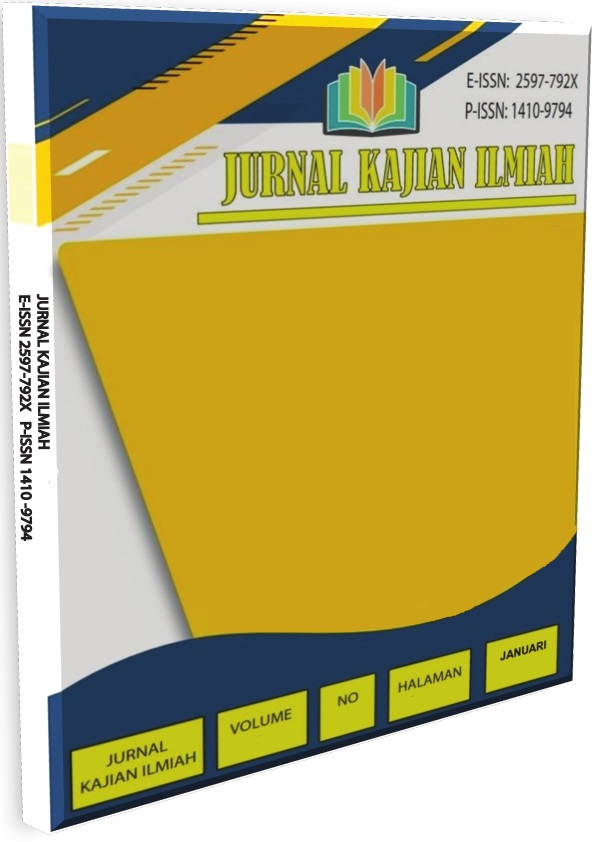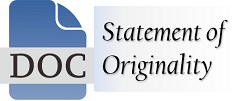Keberlanjutan, Konsep Ekonomi Sebagai Filosofi Kehidupan
DOI:
https://doi.org/10.31599/c8ccme66Keywords:
Anthropocentrism, Economic concept, Sustainability, Utilitarian theoryAbstract
The concept of sustainable development is not only related to human welfare but also to the world in which humans live, therefore the concept of sustainable development can be understood as an economic philosophy that includes classical philosophical prospects and harmonizes and integrates economic, socio-political and ecological systems activities. The scope of this research includes an analysis of the philosophical meaning of the concept of sustainable development, with a focus on disclosing the synergy of sustainability and the economic concept in which there are perspectives of anthropocentrism, ecology and utilitarian theory. The writing of this article uses the literature review method based on relevant research journals and documents.
Downloads
References
Ariansen. (1993). Miljofilosofi. Bokforlaget Nya Doxa.
Ayres, R. U. (1978). Resources, environment, and economics: applications of the materials/energy balance principle. John Wiley.
Boulding, K. E. (1991). What Do We Want to Sustain?: Environmentalism and Human Evaluation In Ecological Economics: The Science and Management of Sustainability. Columbia University Press.
Clark, J. M. C. (1989). Natural Resources Economics, Notes and Problem. Cambridge University Press.
Conrad, J. M. (1999). Resource Economics. Cambridge University Press.
Costanza. (1991). Assuring Sustainability of Ecological Economic Systems In Ecological Economics: The Science and Management of Sustainability. Columbia University Press.
Daly, H. E. (1991). Elements of Environmental Macroeconomics In Ecological Economics: The Science and Management of Sustainability. Colombia University Press.
Daly, H. E. (1996). Beyond Growth. Beacon Press.
Hassan, M. I. (2002). Pokok-Pokok Materi Metodologi Penelitian dan Aplikasinya. Ghalia Indonesia.
Hussen, A. M. (2000). Principles of Environmental Economics: Economics, Ecology, and Public Policy, Routledge. Routledge.
Keraf, A. S. (2005). Etika Lingkungan. Kompas Media Nusantara.
Kuntowijoyo. (1998). Paradigma Islam Interpretasi Untuk Aki. Mizan.
Kymlicka, W. (2004). Contemporary Political Philosophy: An Introduction. Pustaka Pelajar.
Malthus, T. R. (1872). An Essay on the Principle of Population.
Molotokiene, E. (2020). A Philosophical Analysis of the Concept of Sustainable Development. 31, 148–156.
Odum, H., & Odum, E. (1976). Energy Basis for Man and Nature. American Journal of Physics, 45(6).
Pearce, D., & Barbier, E. (2000). Blueprint for Sustainable Economy. Eartscan Publications.
Pezzey, J. (1992). Sustainable Development Concepts: An Economic Analysis. The World Bank.
Amandemen Undang-Undang Dasar 1945, (2002).
Serafy, S. E. (1991). The Environment as Capital In Ecological Economics: The Science and Management of Sustainability. Colombia University Press.
Smith, A. (1977). Amazon Jungle: Green Hell to Red Desert? by RJA Goodland and HS Irwin. Elsevier, 14(2), 184–184.
WCED. (1987). Report of the World Commission on Environment and Development : Our Common Future Acronyms and Note on Terminology Chairman’s Foreword. In Report of the World Commission on Environment and Development: Our Common Future.












_-_Copy1.jpg)




